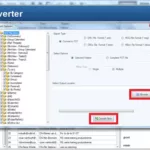
How to Manage Business Finances for Beginners
Four in ten small businesses don’t make it past the first five years. This is because of poor financial management.
Business finances can be intimidating, especially if you’re a beginner. It is not also wise to put it off at the end of the month or when you have time. But, if you know where to start, it could help you save and make money for your business. So what are the first steps to take to manage your business finances effectively?
If you are new to managing business finances, don’t be intimidated. Read on and discover everything you need to know.
Creating a Budget
Once you have a clear picture of your income and expenses, you can start to create a budget. Begin by allocating a certain amount of money to each expense category. Then, track your actual expenses over time to see how close you are to your budget.
If you find that you’re consistently spending more than you’re bringing in, you’ll need to make adjustments to your budget.
Tracking Business Expenses
Track all of your expenses including money spent on inventory, marketing, rent, salaries, and anything else related to finance management. Tracking your revenue and profits to see how your business is performing will help you make informed decisions about where to allocate your resources.
Separating bank accounts for your business will help you keep track of your finances and avoid mixing personal and business expenses. Always remember to save for Taxes as it can take a big chunk out of your profits. Consult a business accountant to help you with your accounting.
Organizing Your Financial Records
Establishing a system for tracking the income and expenses of your startup business can be done using a spreadsheet, accounting software, or even a simple notebook. Be sure to record all income and expenses, no matter how small.
Next, categorize your expenses. Common categories include office supplies, advertising, travel, and inventory. You can also create sub-categories to further break down your expenses.
Seeking Professional Advice for your Business Finances
While it is possible to find online resources and tips, working with a professional who can offer startup accounting guidance and support tailored to your specific business can make a big difference. Professional advisers can help you understand financial statements, set up budgeting and forecasting tools, and make sound financial decisions for your business.
Managing Cash Flow
If you’re starting a small business, you’ll need to manage your cash flow. Cash flow is the money that is coming in and out of your business. Forecasting your cash flow is also important.
This means estimating how much money you will need to keep your business running. You can use a cash flow forecast to plan for expenses and make sure you have enough money coming in.
Follow the Tips to Business Success
If you’re new to managing business finances, there are key things you should know: keep careful track of all your income and expenses; create a budget and stick to it; save for a rainy day by setting aside money each month; always keep an eye on your credit score. By following these simple tips, you can keep your finances healthy and your business thriving.
If this has helped you, check out other financial tips in our blog.















